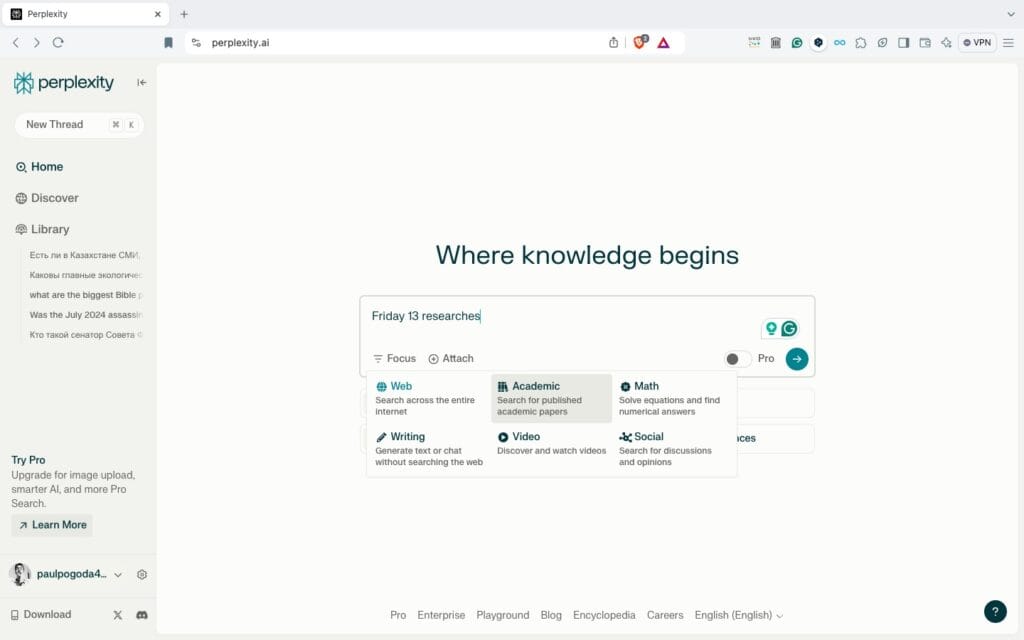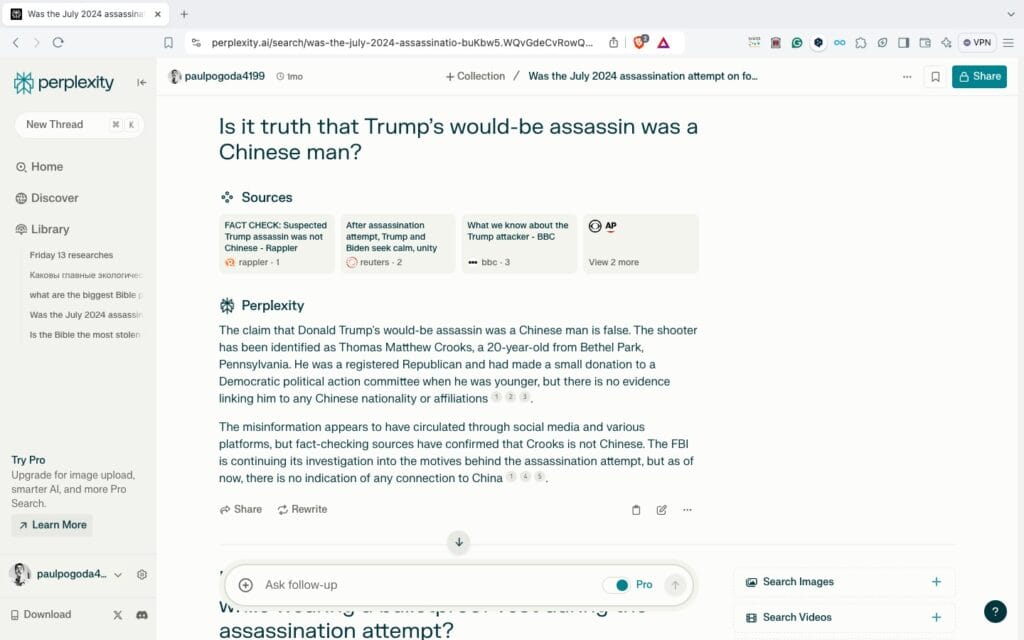Neural networks are becoming constant human assistants in a huge number of areas. More and more users are turning to ChatGPT, Claude, Gemini and other neural networks in search of answers to professional questions or the first available information for student work. However, there is a problem - the so-called artificial intelligence (AI) hallucinations, during which the machine can give out a fib as an answer to a question or call an incorrect statement true. In this article we will tell you about Perplexity, a neural network that is designed to overcome this challenge.
"Simple" solution for deep search
Perplexity is a search engine based on natural language processing. Unlike the more popular ChatGPT, Perplexity provides more extensive and understandable capabilities for professionals whose work involves regularly searching and clarifying information. It uses the context of user queries to provide personalized web search results. This neural network summarizes the search results and produces text with embedded quotations - what is important, immediately with links to the original data sources. It can also help you find more complete information on a topic that interests you, offering ready-made clarifying queries.

This model in its basic version can quickly write simple working code in the Python programming language for deeper research or switch to writing mode (disconnected from the global Internet) and help compose a text. We also note that Perplexity does not have a number of restrictions that other popular chatbots have.
Tests conducted by Verified show that even in the free version, this neural network is quite accurate and unbiased. Apparently, our colleagues from NewsGuard also agree with us. After the assassination attempt on Donald Trump, NewsGuard conducted audit, which found that products from ten leading companies failed to provide accurate information about the shooter and the circumstances of the incident. NewsGuard tested ChatGPT-4, Smart Assistant, Grok, Pi, le Chat, Copilot, Meta AI, Claude, Gemini and Perplexity using three different query styles for six proven false assassination claims. On average, chatbots provided rebuttals only 43.33% of the time, and only one was able to rebut all false narratives with 100% accuracy. NewsGuard, for obvious reasons (the possibility of a lawsuit or accusations of supporting a specific developer), does not disclose which neural network succeeded, but the independent “Verified” test showed that it was most likely Perplexity.

As for the depth of the search, it was Perplexity that helped the author of this text discover an article in the Chicago Tribune, information from which, in all likelihood, formed the basis of the narrative that The Bible is the most stolen book in the world. Other search and AI systems either did not detect this link or hid it deeply enough as irrelevant to the request.
Can Perplexity hallucinate?
We do not exclude this possibility, but during four months of testing we did not observe hallucinations. Of course, this neural network can make mistakes. During testing, Perplexity inaccurately read the source several times and incorrectly matched the data in it. However, this seems to be a small problem: Perplexity provides all the links to the texts that it used, and they are easy to consult. Consulting primary sources is a basic fact-checker skill.
Fine settings
As with other neural networks, Perplexity can be customized. In the settings menu, you can provide information about yourself and your area of interest, set the style and principles for constructing answers. By being as specific as possible about what you need Perplexity for, you can get results that are even more relevant to your industry. To check your watch for search bias, you can switch to anonymous mode at any time and conduct a search without taking into account your settings.
Price and quality
Perplexity operates on a freemium model. This means that the basic version, which uses its own large language model, is available for free and includes ten premium queries per day. The basic version is programmed to perform detailed searches, scientific searches, or focus on a specific source (such as YouTube). Users of the paid version receive more than 300 premium queries, the ability to choose a language model, including GPT-4 and an experimental model of Perplexity's own engine, access to query visualization, image generation and analysis of an unlimited number of uploaded files.






